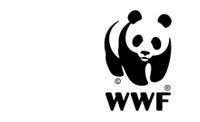True Cost Accounting (TCA) is a tool that can reveal the externalities related to food production and consumption, and serve as a basis to internalize these impacts (both positive and negative), and foster the most sustainable behaviours and practices.
The “hidden costs” of global food systems are estimated to be US$19.8 trillion annually with $12 trillion from health costs. These costs stem from diet-related chronic diseases, impacts of climate change, and unfair wages. Often, these costs are borne by the least advantaged segments of society (e.g., smallholder farmers, youth, women, Indigenous Peoples, people of colour, marginalized communities). By applying the right incentives, these costs can be mitigated to ensure that food systems create real value for society. This session will discuss how food system approaches, particularly True Cost Accounting, can provide holistic assessments of the negative externalities and positive benefits of different interventions, thus elucidating evidence that leads to the improvement of food system strategies and policies.
Confirmed speakers (in alphabetical order)
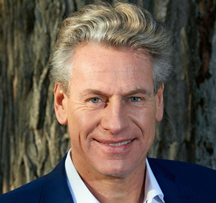
Eberhard Brandes
CEO, WWF-Germany
Eberhard Brandes
CEO, WWF-Germany
Bio not available.
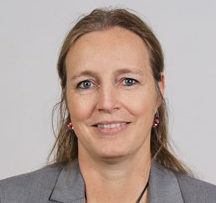
Susanne Breuer
Officer for Latin America / Energy and Food, MISEREOR
Susanne Breuer
Officer for Latin America / Energy and Food, MISEREOR
Born in 1967 in Aachen, Germany, Susanne Breuer studied Regional Studies - Latin America and Economics at the Free University of Berlin, with a focus on international cooperation. She spent a year in Colombia and has been working with MISEREOR since July 2005. From 2020 to 2021, she had an assignment with the Federal Foreign Office in the Religion and Foreign Policy unit, focused on peace construction. Since November 2021, she has been back with MISEREOR, supporting advocacy work connected to Latin America and to global food challenges.
More information
Website – www.misereor.de
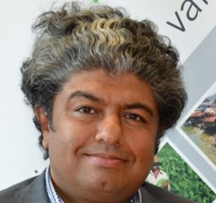
Salman Hussain
Head, The Economics of Nature Unit, UNEP
Salman Hussain
Head, The Economics of Nature Unit, UNEP
Dr. Salman Hussain is an environmental economist who joined UNEP in 2014, having previously been a researcher in ecological economics. He is Unit Head for The Economics of Nature Unit in Ecosystems Division in UNEP, and he is the TEEB Coordinator. TEEB (The Economics of Ecosystems and Biodiversity) is a UNEP-hosted initiative that aims to recognize, demonstrate and capture the values of nature. Salman initiated the launch of TEEBAgriFood in 2015. UNEP is currently applying the TEEBAgriFood Evaluation Framework in over a dozen countries.
More information
Website – www.teebweb.org

Amelie Michalke
Research Assistant, Sustainability Science and Applied Geography, University of Greifswald, Germany
Amelie Michalke
Research Assistant, Sustainability Science and Applied Geography, University of Greifswald, Germany
Amelie Michalke is a research assistant at the University of Greifswald and works in the project “HoMaBiLe - How much is the dish?”, which deals with externalities of agricultural production. Amelie graduated from the University of Augsburg as a Master of Science in 2019 with a degree in industrial engineering. She has since become an expert in the field of true (ecological and social) prices in the context of food production.
More information
Website – www.homabile.de

Alexander Müller
Managing Director, TMG – Think Tank for Sustainability
Alexander Müller
Managing Director, TMG – Think Tank for Sustainability
Alexander Müller is a former FAO Assistant Director-General (2006-2013), and State Secretary for Consumer Protection, Food and Agriculture, Germany (2001 -2005). He has vast experience in global sustainability governance, as inter alia: Chair of the UN Standing Committee on Nutrition; member of the UN Environmental Management Group; and Lead, Voluntary Guidelines for Responsible Governance of Land, and TEEBAgriFood.
More information
Website – www.tmg-thinktank.com
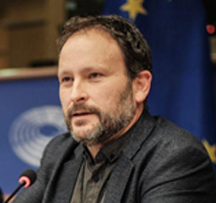
Jabier Ruiz
Senior Policy Officer, Agriculture & Sustainable Food Systems, European Policy Office of WWF
Jabier Ruiz
Senior Policy Officer, Agriculture & Sustainable Food Systems, European Policy Office of WWF
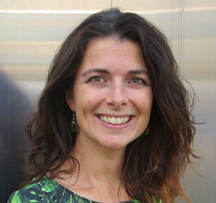
Martine van Weelden
Senior Manager, Capitals Coalition
Martine van Weelden
Senior Manager, Capitals Coalition
Martine van Weelden is a Senior Manager at the Capitals Coalition and leads on the TEEBAgriFood for Business project. She is responsible for the successful application of capitals thinking in the business sector within the scope of the TEEBAgriFood project. She has over 15 years of experience in the field of sustainability, ecosystem services and natural capital driving change and building strong networks.
Prior to her appointment at the Capitals Coalition, Martine worked for the Ecosystem Services Partnership (ESP). She chairs the ESP Sectoral Working Group Ecosystem Services in Business. Martine holds a masters degree in cultural anthropology. She is passionate about building partnerships with people from various backgrounds to support societal transformation that includes natural, social and human capital.
More information
Website – www.capitalscoalition.org
Agenda
Mar 24, 2022
Moderation by WWF, welcome and announcement of introductory speech
Why is it important to draw a clear picture of the externalities in the food system?
Eberhard Brandes, CEO WWF-Germany
How much is the dish?
A research project Amelie Michalke, University of Greifswald, Germany
True Cost Accounting and Dietary Patterns: The Opportunity for Coherent Food System Policy
Alexander Müller, Managing Director, TMG – Think Tank for Sustainability
Social aspects of TCA from a global south perspective
Susanne Breuer, Officer for Latin America / Energy and Food, MISEREOR
Panel discussion
Moderated by Jabier Ruiz, WWF EPO
– Martine van Weelden, Capitals Coalition
– Salman Hussain, UNEP
Closing remarks


